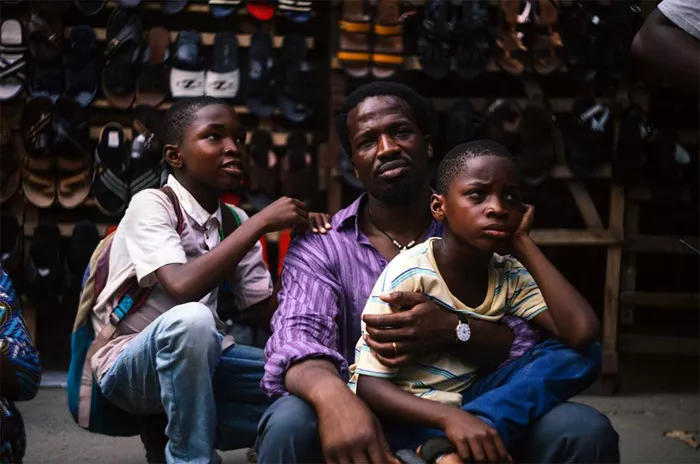Akinola Davies Jr.’s My Father’s Shadow is making history as the first film by a Nigerian director to be officially selected at the Cannes Film Festival. Premiering in the Un Certain Regard section, this evocative movie weaves together the realms of reality and imagination through the haunting refrain, “I’ll see you in my dreams,” which echoes throughout the film, capturing its emotional core.
Set against the backdrop of Nigeria’s pivotal 1993 presidential election—the country’s first since a decade under military dictatorship—the story follows two young brothers, ages 8 and 11, as they embark on a day trip to Lagos with their father, Fola. The trip is prompted by Fola’s need to collect a paycheck tied to his political work, but it quickly unfolds into a meditation on family, memory, and the unseen forces that shape their lives.
The film opens with a dreamlike sequence blending natural imagery—buzzing flies, swarming ants, and the rustling wind—with the boys’ rural village life. Their father’s sudden arrival and invitation to visit Lagos is a rare moment of connection, revealing the fractured dynamics within the family. On the journey, the boys overhear conversations about a recent massacre of pro-democracy protestors, an event shrouded in conflicting narratives and political tension. Fola’s reluctance to discuss these issues, coupled with his frequent nosebleeds, hints at a deeper unease simmering beneath the surface.
As they navigate the bustling city, the movie shifts between mundane family interactions and charged political undercurrents. The boys experience the vibrancy of Lagos—including a thrilling amusement park visit—while their father negotiates for payment amid a community hopeful yet anxious about the election’s outcome. The film’s flowing imagery and poetic dialogue do not always drive a linear plot but instead evoke a powerful sense of place and emotional complexity, reminiscent of acclaimed African films like Atlantics and Dahomey that blur the lines between the living and the spiritual.
The fragile calm shatters when news breaks that the ruling party has annulled the election results amid allegations of fraud, sparking outrage and despair among Fola’s circle. The return trip turns tense and ominous, culminating in a chilling encounter at a military checkpoint where the past and present collide. Throughout, My Father’s Shadow maintains an enigmatic atmosphere, inviting viewers to ponder what is memory, dream, or something more unsettling.
With its tender yet haunting exploration of family, history, and political turmoil, My Father’s Shadow stands out as a richly layered and beautifully elusive movie, marking a significant milestone in Nigerian cinema’s global presence.

